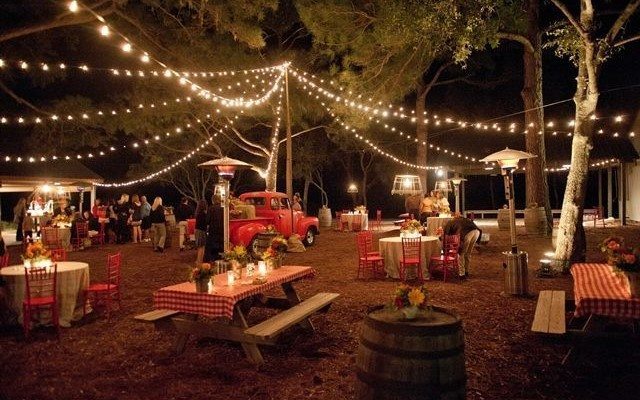It’s the day before the big event. You’ve got twenty-four hours (or less) to go. In a way, it’s like the night before the end of a great political campaign. You’re surrounded by most of the people you care for, and the rest are on their way. You’ve given it your absolute all, and that’s really all you can do.
So do you want to spend the night before your wedding all amped up like a high school junior before the SAT? Or do you want to shrug your shoulders and spend this time eating, drinking and making merry with your wedding party and family?
Most brides want the latter. The only hitch: the rehearsal dinner comes at the end of a long, long list of things to organize — and pay for. The good news is, although the rehearsal dinner’s a widely adopted custom, it’s not required. And if you feel it’s a burden, skip it. Go out for hot fudge sundaes with your girlfriends instead, or do whatever it takes to lighten your load.
On the other hand, if your final crunch week hasn’t been so bad, you might be looking forward to this chance to spend a cozy evening with the people who helped you pull off this wedding, letting them know how important they are to you. In that case, here are a few pointers for pulling together this small but meaningful party.
The Nitty-Gritty Details
Of course, the rehearsal dinner isn’t all play. There’s some work involved too: namely, that little matter of the wedding rehearsal, which is usually held on-site at your ceremonial site. This is often the only chance at a group walk-through before the big day, so people are typically eager to do it. The dinner afterward can be held almost anywhere, from a restaurant or a country club to a party house or even someone’s home.
Over dinner, the couple typically takes a moment to thank the guests for their time and effort. And often, they follow up with more tangible tokens of thanks for members of the wedding party. Around this time, the bride and groom’s parents will typically offer a toast to the couple. Other than these key elements, the rehearsal dinner is a pretty free-form affair without any special agenda. Leave the formality for your wedding day.
Okay, but who pays for the rehearsal dinner? Like so many areas of wedding etiquette, this one’s become a little murky. By tradition, parents of the groom are expected to foot the bill, but it’s getting increasingly popular for the wedding couple to pay for the dinner themselves. For one thing, today’s wedding couples are often a little older and a little better off, and they’re used to making their own choices — which often means paying the tab.
Traditionally, the rehearsal dinner is a small affair for parents, wedding party members and significant others, but it’s yours, and you can invite anyone you want. It’s common to invite out-of-town guests, for example. But if this seems a little overwhelming, try skipping the traditional dinner and holding a simple cocktail party with a cash bar instead, just to give everyone a chance to get together. Keep it simple: ask the venue to supply the hors d’oeuvres.
Your Day, Your Way
Fortunately for overstressed brides, there’s nothing about the rehearsal dinner that’s written in stone, including whether or not to even have one. So feel free to bend the rules when planning yours, and make it meet your needs.
But if you’re up for one, you’ll probably find your rehearsal dinner offers a great chance for close friends to partake of your celebration in a satisfyingly intimate setting. And don’t forget — unlike so many of those political campaigns, this is one event that’s sure to end in triumph.


